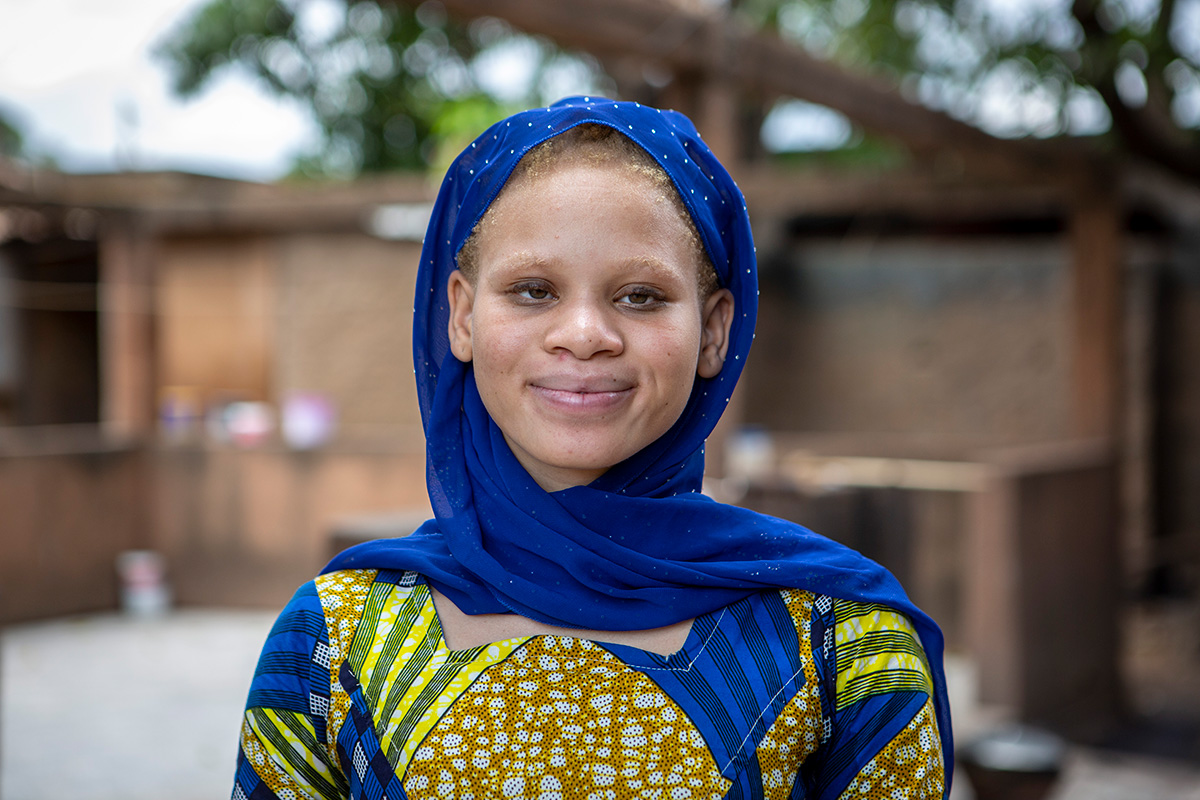
“Albinos have the right to the same opportunities as others.”
"There are people who die simply because they are albino," says Bintou, referring to a violent crime that occurred four years ago. A five-year-old girl lost her life because some people thought it would change the course of the election. "Every time a child with albinism leaves home, they are on the lookout. Sometimes parents are even too scared to let them out."
At 15, she wants to make change for those who suffer for no other reason than, like her, "they have less melanin." "I would like society to change its view of albinos, to realize that we are all equal."
For the past two years, Bintou has been one of the stars of "Youth Talk," a radio program produced by the children of Bamako. With her soft voice, one might believe her when she says that there was a time when she was shy. But once in front of the microphone, the magic happens. Bintou fills the studio with her presence, speaks with confidence. "From the very first show, I felt my fear disappear. I felt free to say what I think, to believe in myself and my ideas."
The topics are varied; no issue is left out: forced marriage, drugs, school violence, conflicts. "The shows make me question things. Then, when I go home, I continue to write about what we talked about, discussing it with my friends."
Our young star is heard and noticed. The association for the protection of albinos, of which she is a member, asked her to co-host another program, "The Voice of the Voiceless," dealing specifically with disability.
"We reach out to these young people who sometimes don't even believe in their existence. It's important to talk to them, to make them feel like they can meet these challenges, to tell them that their disability is not their fault."
Her dreams, once timid as well, are coming true. "As a kid, I kept saying I wanted to be a journalist. Now I'm sure of it. I've found my calling." Bintou is convinced that her dreams also have the power to make others shine. "Children with albinism are often left out. I think seeing me behind the microphone will give them confidence. It will open their eyes to the fact that they have the right to the same opportunities and the same life as others."